For our fourth “Workshop in the Humanities“ of the 2016 group we invited, besides the fellows, some of their students as well. Seven MA students and PhD candidates thus attended and enriched our conference. They presented their theses (some of these even award-winning) during the paper presentation panel and bravely faced the plenum's discussion afterwards.
A roundtable discussion with Fellows and senior scholars treated "Research Dissimination and Policy Making". Coaching units were conducted by psychologist Birgit Carstensen and dealt with Post-graduate Education and Thesis Supervision as a Project as well as Academic Multitasking and the Advancement of Research Careers.
Roundtable Discussion
The Workshop started with a roundtable discussion titled “From Researchers to the General Public – Research Dissemination and Policy Making”.
Discussants were Professor Innocent Pikirayi (University of Pretoria), Professor Nakanyike Musisi (University of Toronto) and Dr. Halkano Abdi Wario (Egerton University, Kenya) with Dr. Plan Nyabezi (University of Zimbabwe) as facilitator.
All discussants shared their experiences concerning outreach, public relations and dissemination of their research. There are several "publics" to be reached, it seems, since, for example in heritage management, religious conflicts or gender questions there are usually several groups of people affected as well as actors and stakeholders involved, and researchers need to consider local interests as well as political climate, both in international and national context when they go public and make their voice heard. The challenge is to speak up and make a case while also keeping a balanced view on the issue.
In terms of digitalisation, most plenum scholars present still have a lot of potential to let their voices be heard, and do so strategically wise.
Presentation Panel
Seven students and PhD candidates presented their papers during the panel and faced comments, questions and feedback by the academic audience. Having to deal with such a widely varied yet quite versed Humanities group is definitely a challenge!
The students had profited from the Knowledge for Tomorrow Initiative for the past years since the fellows had, in the framework of their project, paid for tuition, books, medical aid and a monthly stipend. Now during the workshop, the students profited from advise for their papers by the audience, especially so by the archeologist Professor Innocent Pikirayi from South Africa, who as a mentor already advanced the papers and careers of many a junior academic, including some of the VW Foundation Humanities fellows.
Having supported these seven students for several years, the fellows now shared proof of their abilities as teachers and supervisors in their faculties, and may be rightfully proud about their accomplishments.
participating PhD and Master students
Admire Thonje
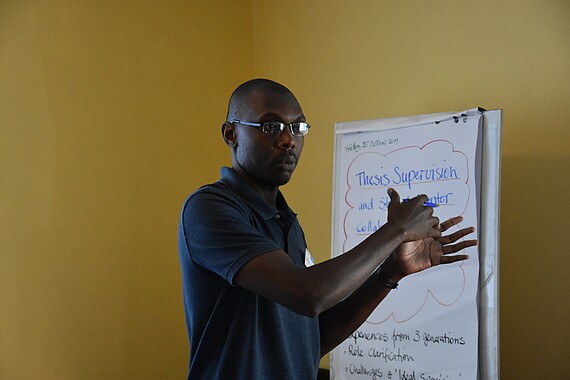
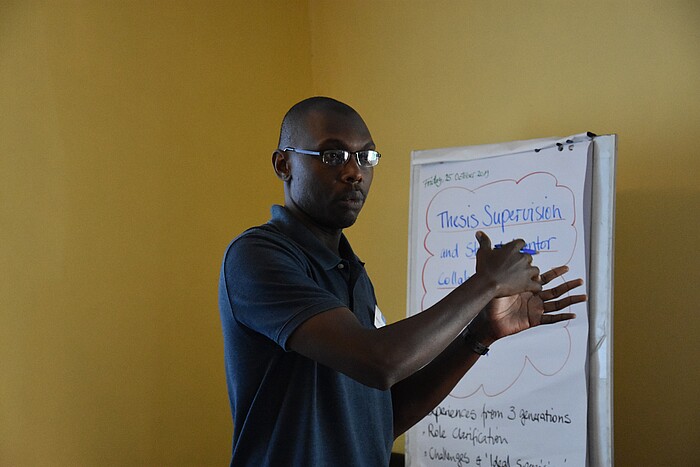
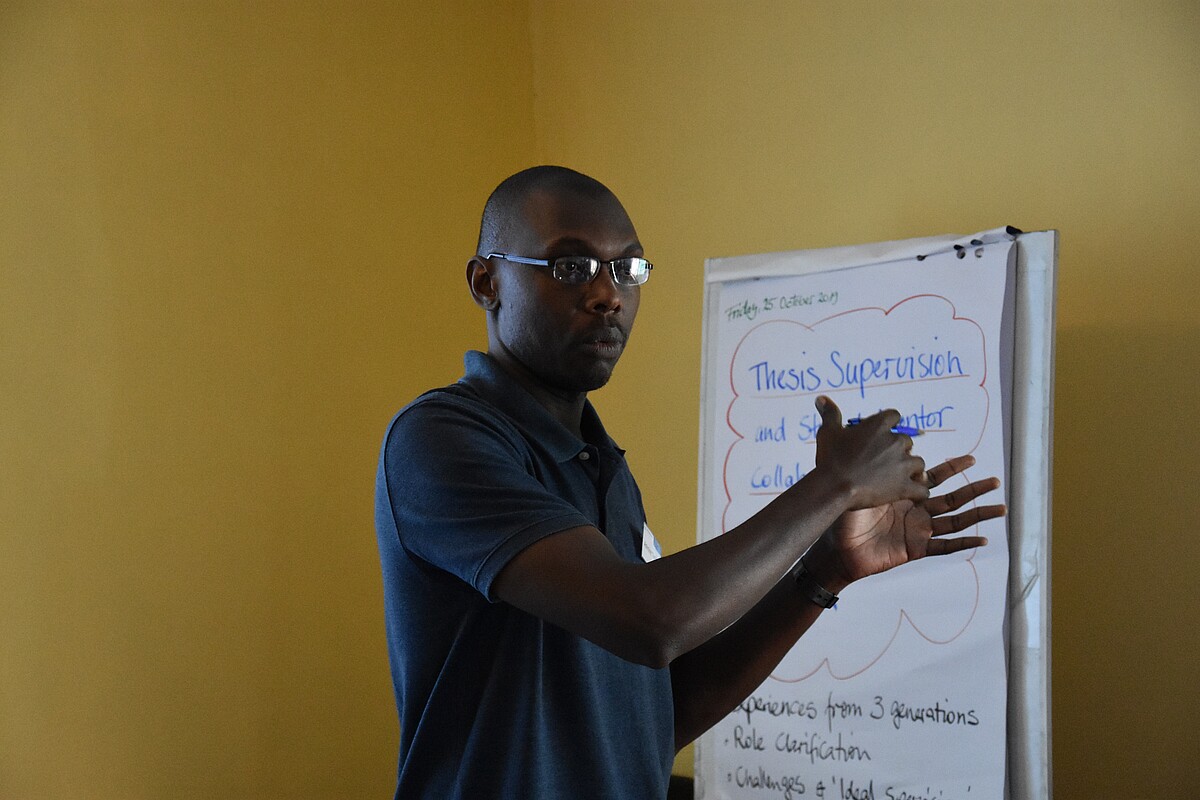 ©
RKT 2019
©
RKT 2019
Amos Atuhairwe
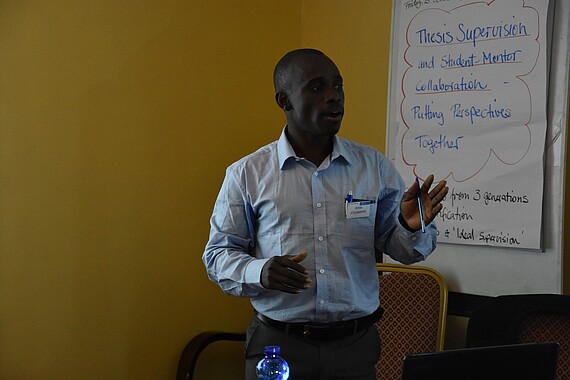
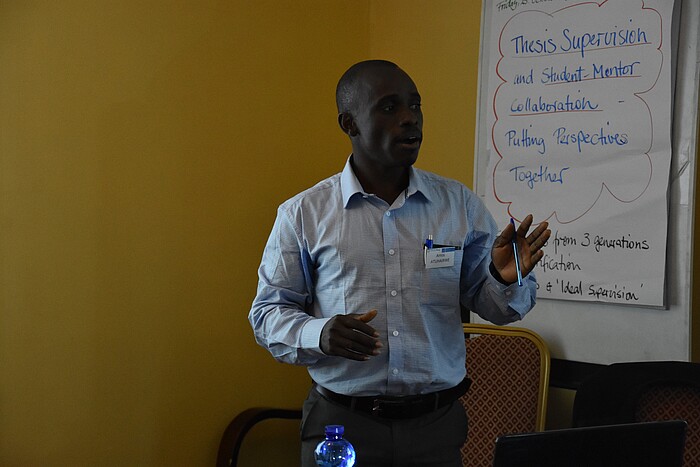
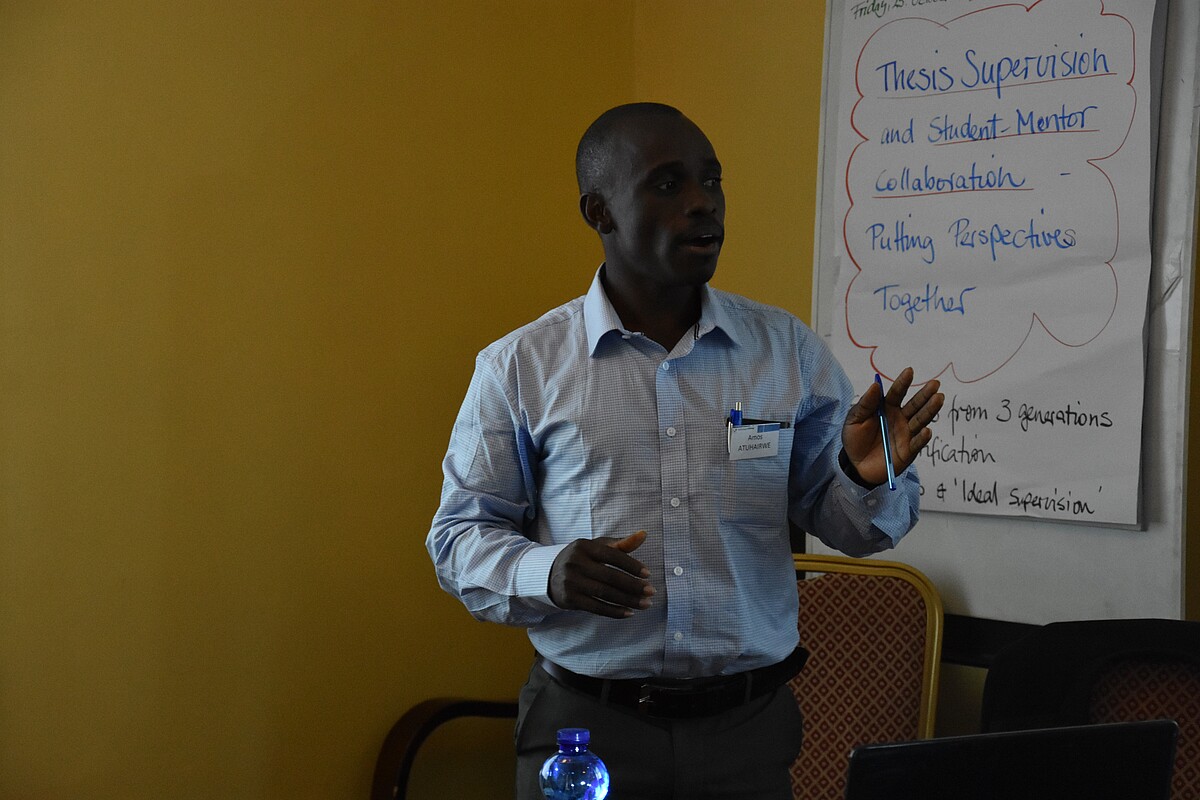 ©
RKT 2019
©
RKT 2019
Elton Sagiya
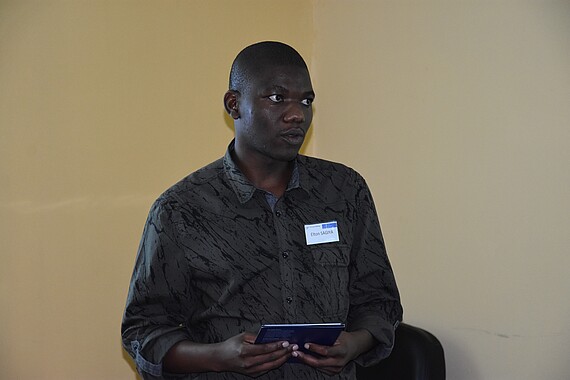
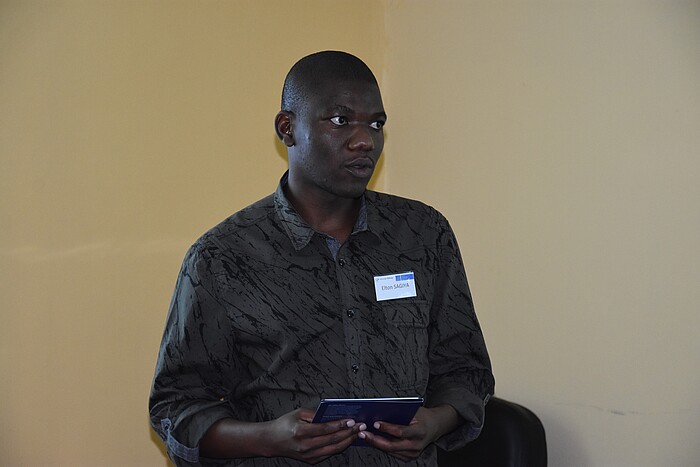
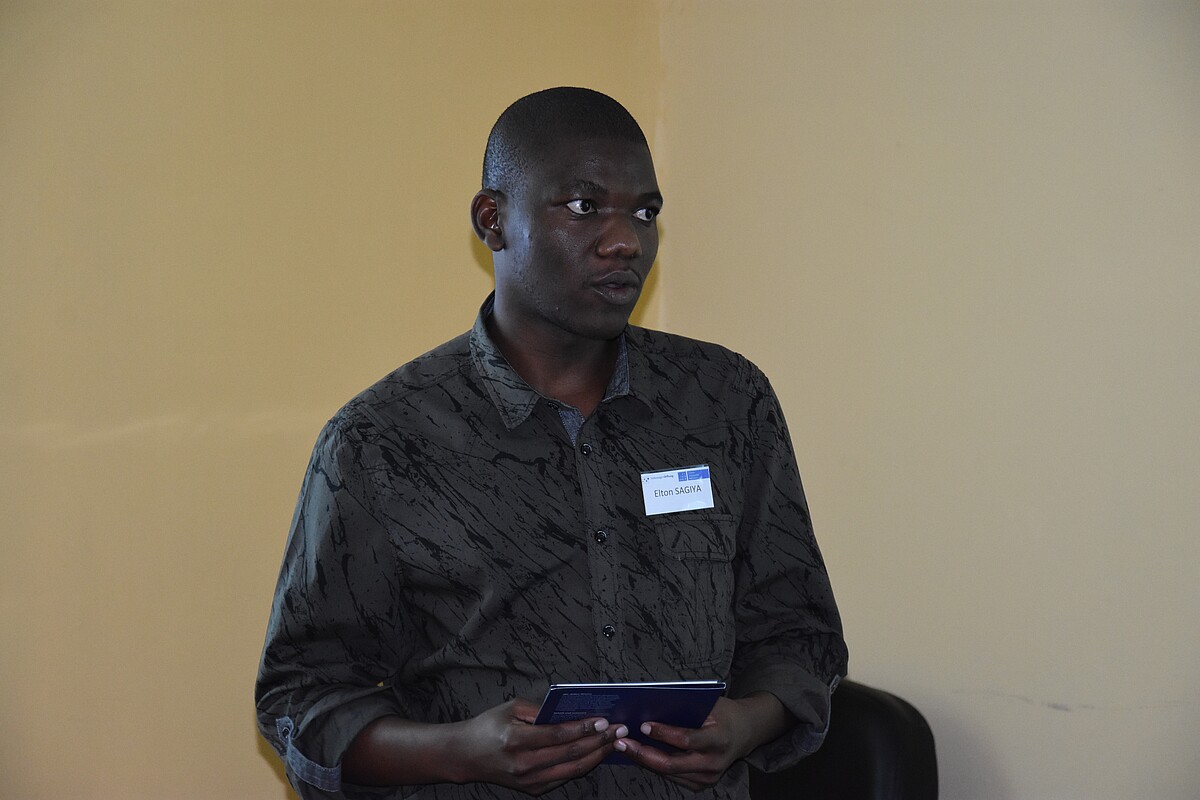 ©
RKT 2019
©
RKT 2019
Musa Said
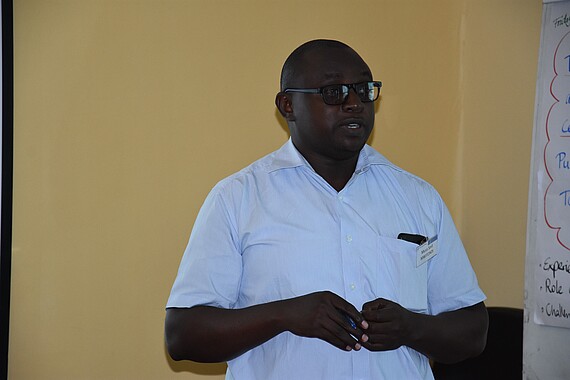
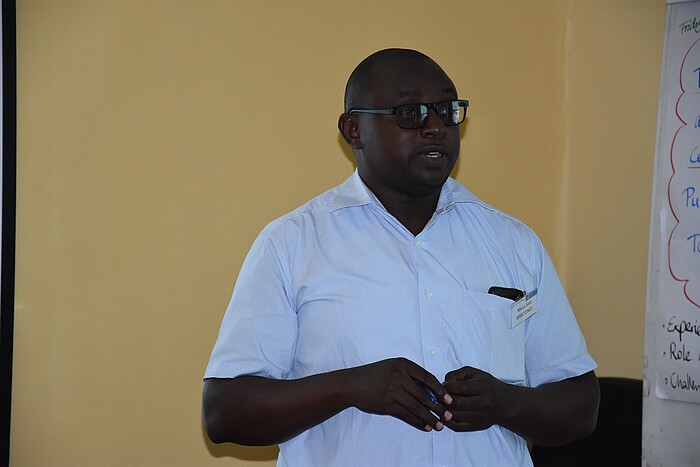
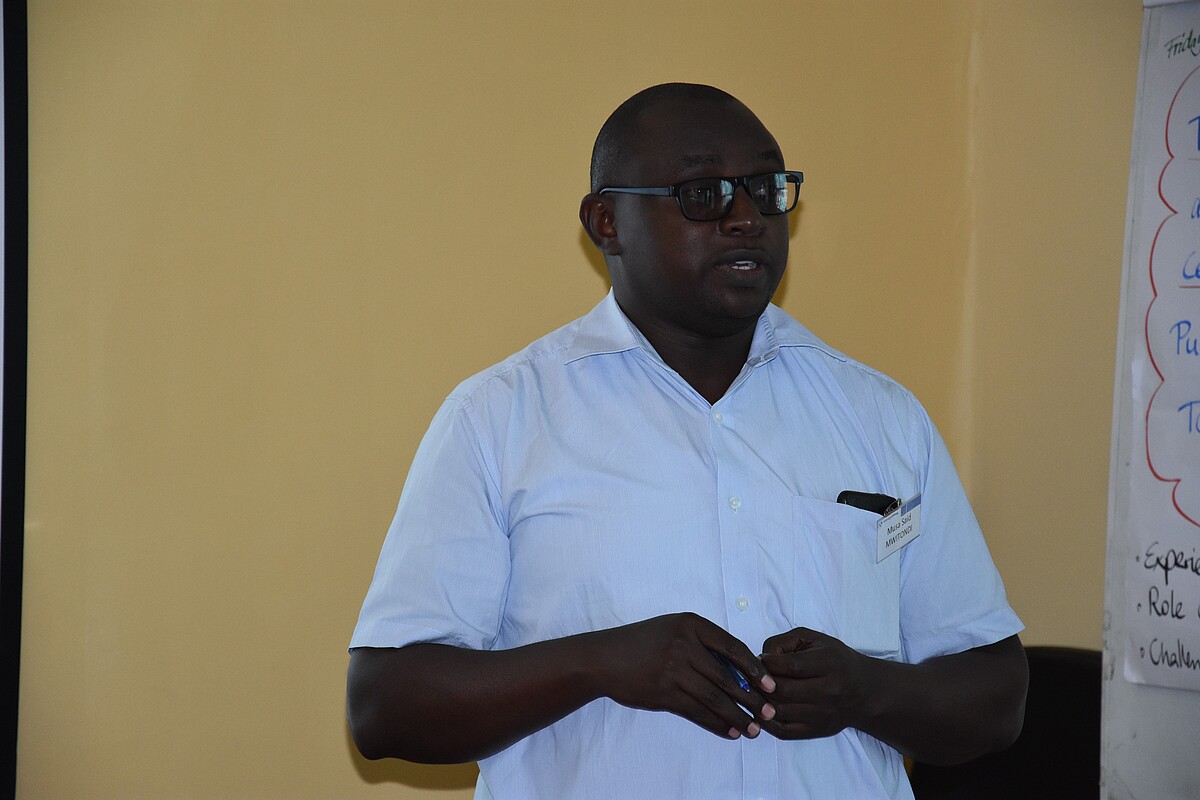 ©
RKT 2019
©
RKT 2019
Sinyati Robinson Mark

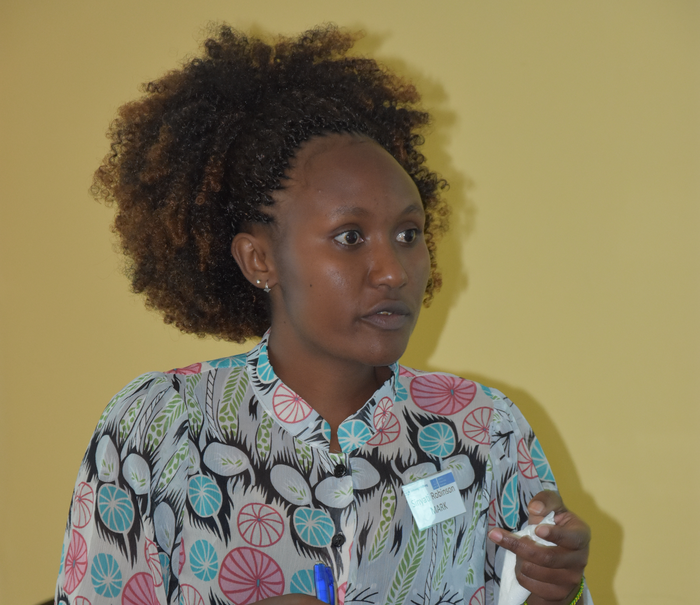
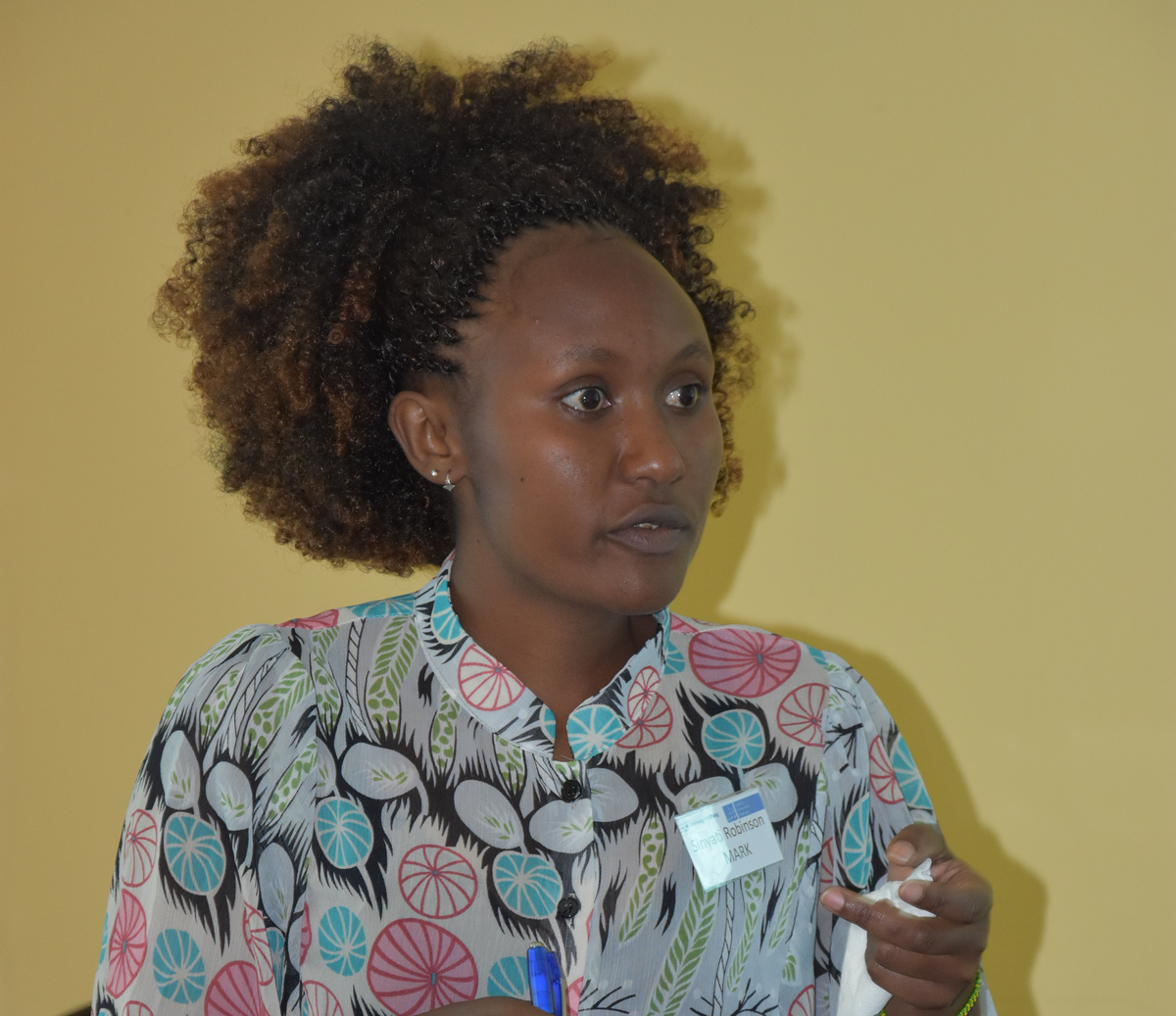 ©
RKT 2019
©
RKT 2019
Kenneth Luhila
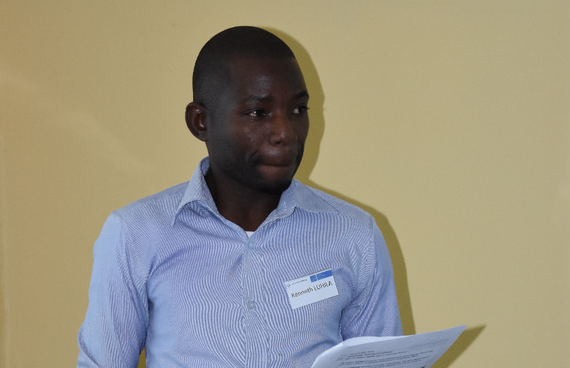

 ©
RKT 2019
©
RKT 2019
Darryl Chanakira
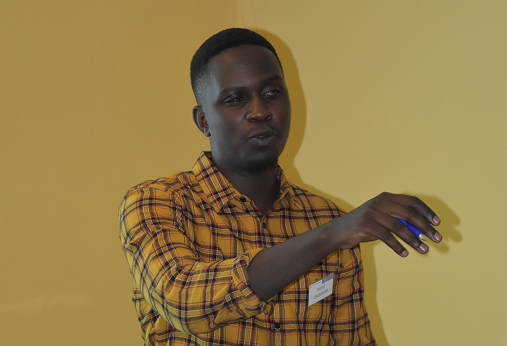
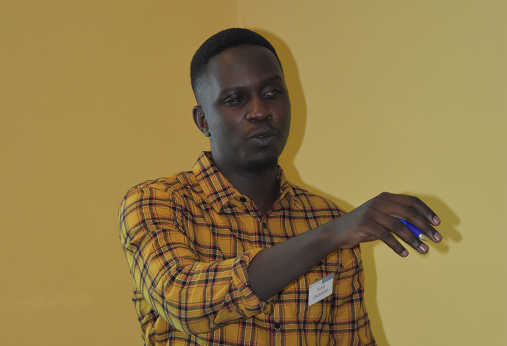
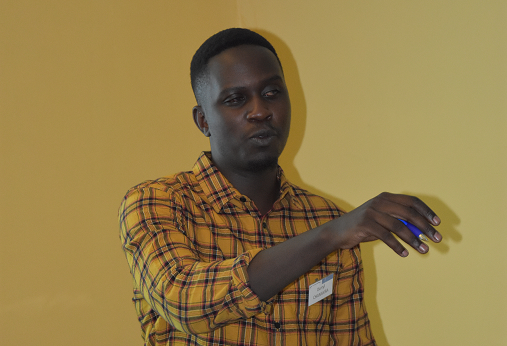 ©
RKT 2019
©
RKT 2019
Coaching
This Workshop's coaching was framed by the themes "Post-graduate Education and Thesis Supervision as a Project" and "Academic Multitasking and the Advancement of Research Careers". In different peer groups - students, non-professorial teaching staff, and professors - those issues were explored and discussed according to the member's own situatedness. How to give proper feedback? How to deal with criticism? Which expectations do I have concerning my mentors, or my own students? What has been helpful in my career so far, what was not? Which expectations do my students or my mentors have, and how do I meet them? How can I network more effectively?
Turns out that at all levels of universities' hierarchies great expectations are cherished, and all levels host fears of failing them - no matter what time zone or academic tradition the university stands for. Time pressure, pressure to perform and the question of how to come up to everyone's expectations seem to be universal issues.
There was a metaphor (originally used by the Professors' group) that sparked a lot of discussion: „We can lead the horse to the water, but the horse needs to drink by itself.“
Ms Carstensen introduced the group with the infamous “Impostor Syndrome”, a mindset which suggests you to be not sufficiently intelligent and underperforming. Low self-esteem and massive self-criticism lead to fears of "getting busted" as an impostor - while actually being an able academic. For finding a way out of thoughts like that, Ms Carstensen suggests using Positive Affirmation Techniques to write over thought patterns.
Cultural Excursion
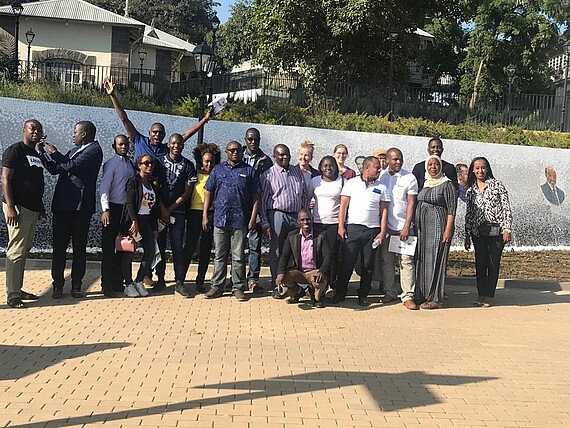
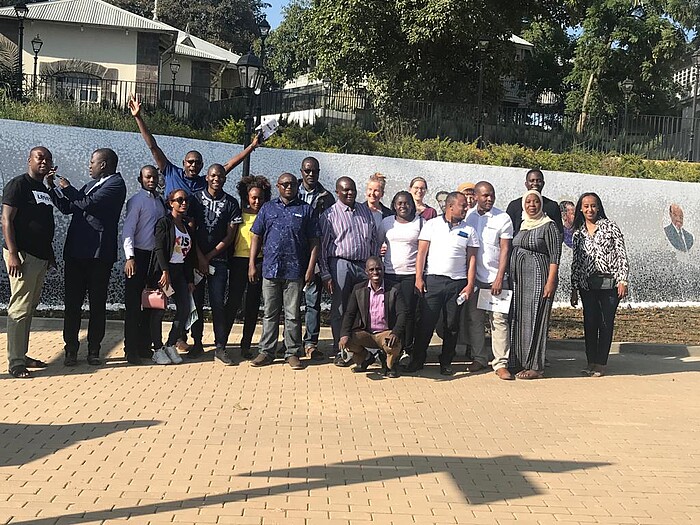
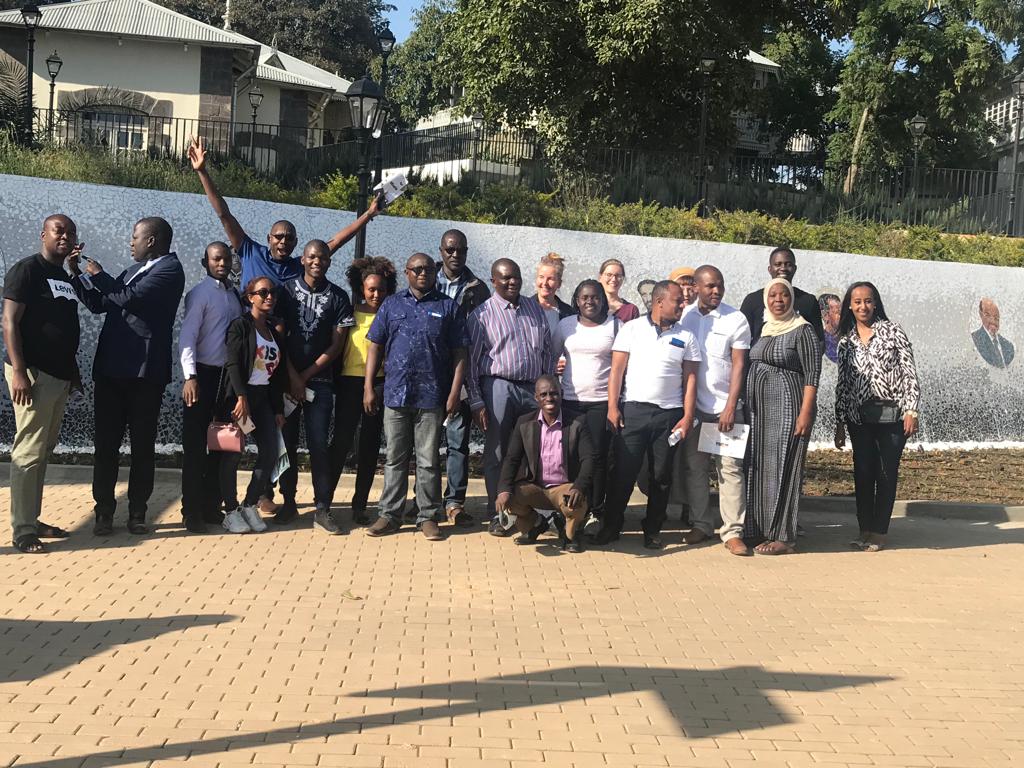 ©
Amos Atuhairwe, Makerere, 2019
©
Amos Atuhairwe, Makerere, 2019
This Workshop's Cultural Excursion led the group to Unity Park, a compound in Addis Ababa on the premises of the Palace of Emperor Menelik II. Unity Park provides space for several exhibitions from local plants and animals of the royal family to the history of Ethiopia, and the Ethiopian regions' diverse characteristics.


